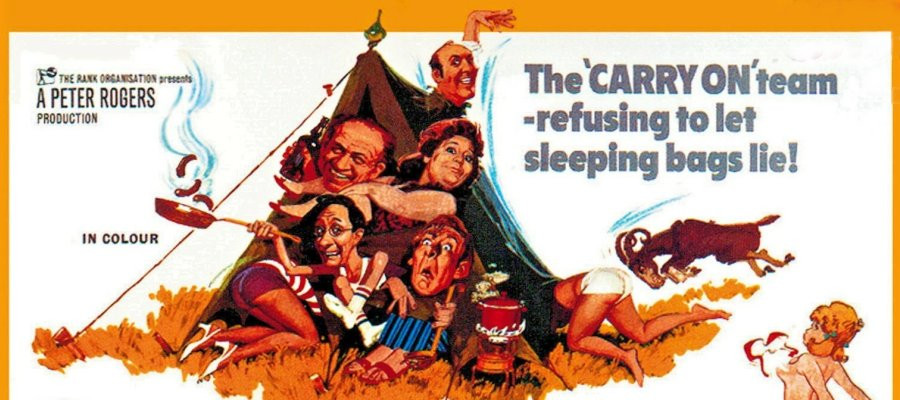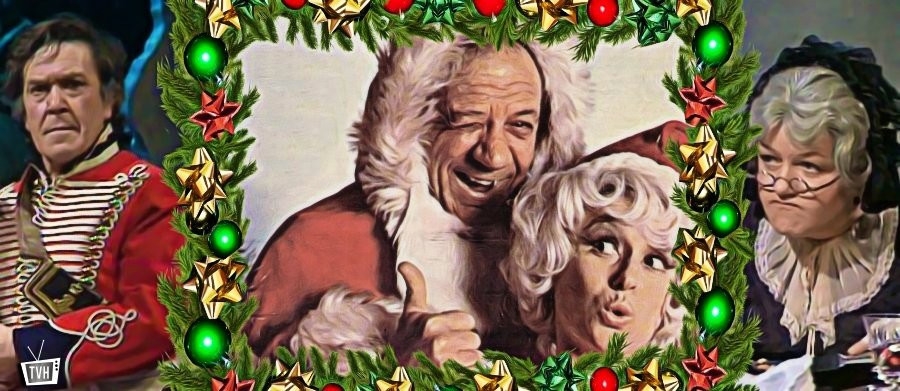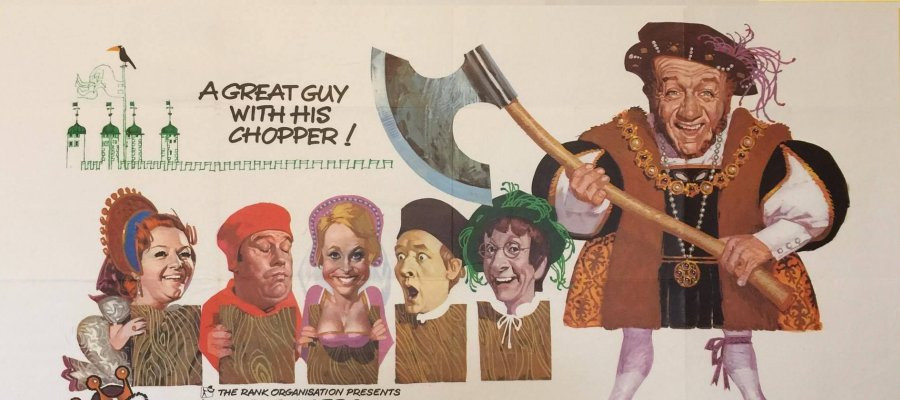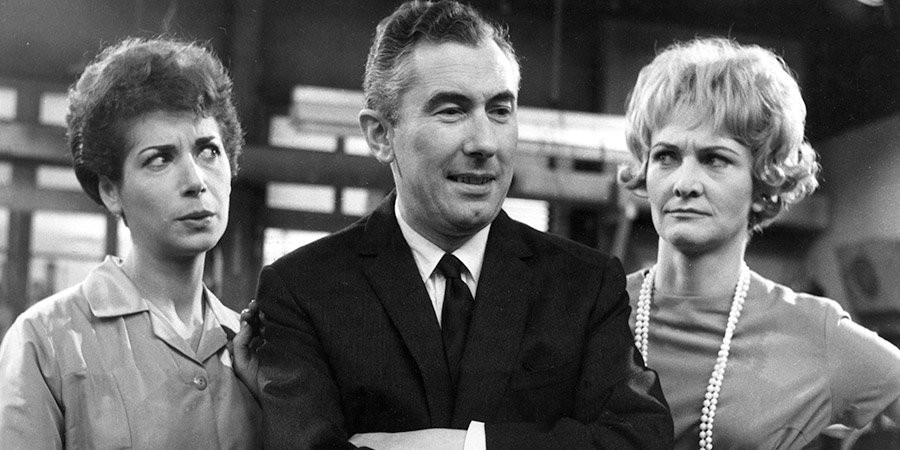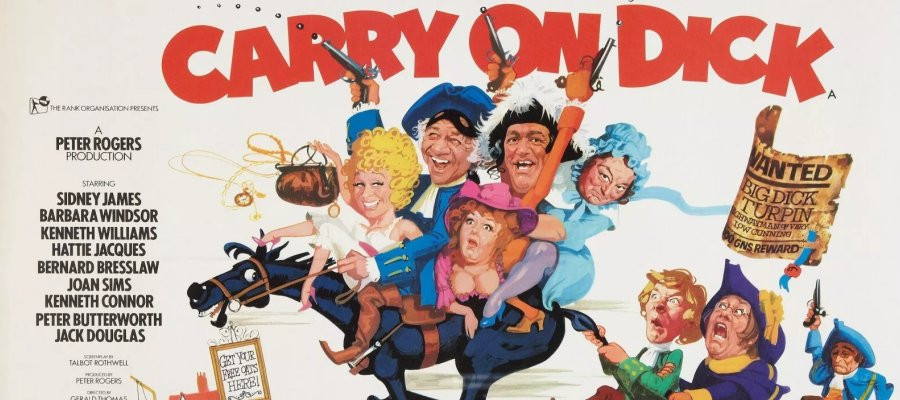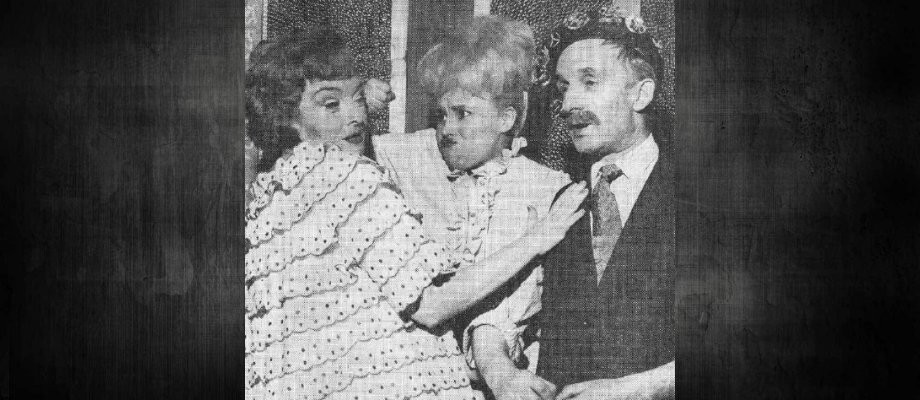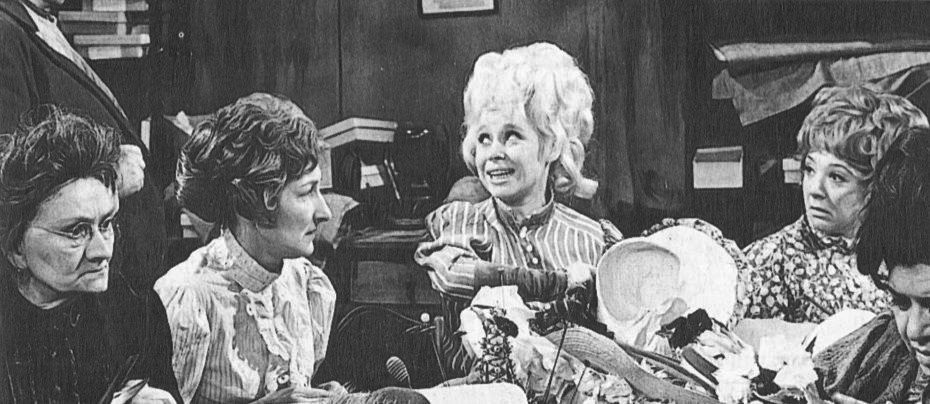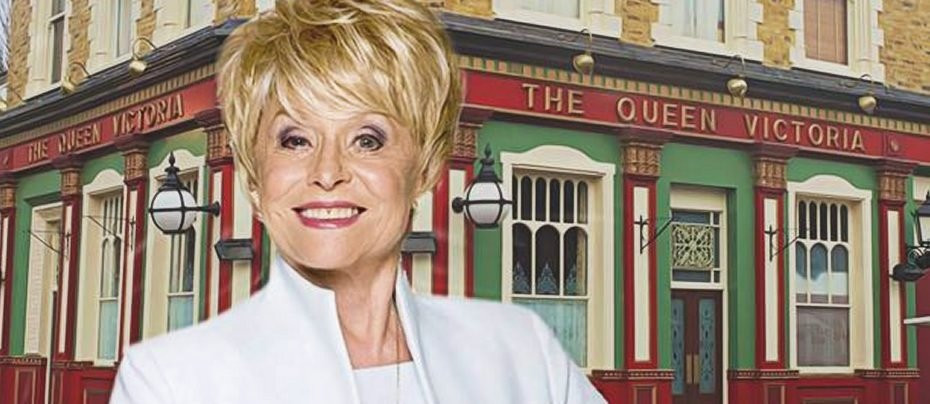
Barbara Windsor
This interview with Barbara Windsor is reprinted with permission from Larry Jaffee’s book, Albert Square & Me: The Actors of EastEnders and was previously published on Teletronic in 2004.
I now believe in second chances, and it’s all because of Barbara Windsor. Why? Because she gave me a second chance, you see. I suppose I’d better explain. Some time ago, a pesky security alert prevented me from reaching the EastEnders studios at Elstree where I was to interview Ms. Windsor. Unfortunately, I had to be on a plane back to New York four hours later, leaving no time for us to meet. She was not at all amused with the situation, especially since she’d failed to receive my message of apologies from the actor who was our go-between.
I quite rationally thought I’d blown my chance forever, but put in for another interview request this past January and, miracles of miracles, she said okay! Ms. Windsor informed me in a non-B.S. sort of way that she wasn’t too thrilled at having been stood up and that I’d better not even contemplate a repeat performance. (I think I could literally hear her eyebrows raise over the phone.) After my emphatic assurances had reached their conclusion, we agreed on a time to meet the following day. I showed up at Elstree that next morning 20 minutes early with a bouquet of roses, which I hoped would be accepted as a token of my apologies.
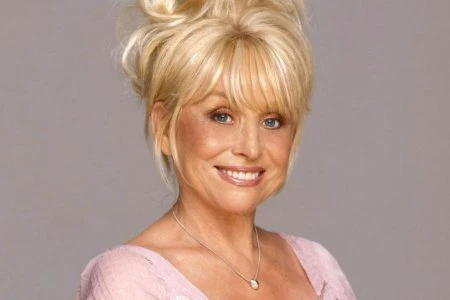
Barbara Windsor, to my relief and delight, was a great gal. She was tremendously energetic, articulate, and an awful lot of fun to be around. We sat in the actors’ lounge next to the make-up and hair room, accompanied by a charming and lovely publicity representative named Sarah Burke. I silently resolved to make the most of the second chance that I was given by this wonderful lady.
Walford Gazette: Thank you for talking to the Walford Gazette.
Barbara Windsor: That’s allright, darlin’. You showed up early, with roses yet! Thank you, they’re lovely. I’m very happy to do this actually because I realise your readers don’t know anything about me except that I’m on EastEnders, and I thought they might like to learn a bit about why I am. Peggy [Mitchell] can be quite a piece of work at times, and I hoped that maybe American viewers can grasp from this interview that I’m not so bad.
WG: I’ll make you sound like Mother Teresa.
BW: You don’t need to go overboard. Let’s just do an honest interview, and let ’em make up their own minds.
WG: It’s a deal. Why don’t I break Americans’ image of you by revealing that you once had plans to be a nun.
BW: Oh, okay, yes, I did receive a scholarship to Our Lady’s Convent School but that obviously wasn’t my calling, was it? I loved performing from a very early age and I suppose singing in a choir just wouldn’t do it for me.
WG: Was it also true that you were born Barbara Ann Deeks in Shoreditch, East London, that you were evacuated to Blackpool when you were a very small child and that you later joined classes at a dancing school with the improbable moniker of Madame Behenna’s Juvenile Jollities?
BW: That moniker may sound improbable, but it’s all true, sweetheart, believe it or not. It’s all there in my autobiography, which I’ve promised to update to include what’s gone on in my life since EastEnders. Maybe I’ll get around to it this year.
WG: Well, we at the Gazette would love make it available to our readers when it’s published. I, for one, cannot wait to read about Madame Behenna.
BW: I can trace a note of sarcasm from you, but I’ll let it pass.
WG: I’m actually serious.
BW: Oh, you New York types. I’ve been over there quite a lot over the years and I’ve got you lot figured out, you know (laughs).
WG: Both Tony Caunter (Roy) and Dilys Laye (Nigel’s mum-in-law Maxine) told me in interviews that they came over to the U.S. to work on Broadway. You did too, didn’t you?
BW: I was on Broadway in Oh, What a Lovely War. I actually first visited New York in 1963 for the premiere of a film I appeared in called Sparrows Can’t Sing. I know you shouldn’t talk about your reviews, but these were fantastic. It was this cockney film that opened at some little artsy cinema and caused quite a buzz.
WG: I read somewhere that it had subtitles.
BW (nods): Isn’t that something? EastEnders doesn’t have subtitles over there, does it? Sparrows somehow captured people’s imaginations. I was flown over for the opening, put up at the Plaza Hotel and before I knew what hit me I was booked to appear on TV shows like What’s My Line? and The Tonight Show with Johnny Carson. I was really feted and it was a marvellous experience all the way round.
WG: You must have been the toast of the town.
BW: It was amazing. Even Judith Crist, who was a very influential, tough critic at the time, likened me to Judy Holliday. And to me Judy Holliday was the best. Born Yesterday is one of my favourite films.’
WG: Sparrows Can’t Sing was your first big break, then?
BW: No, my first real break was a musical called Fings Ain’t Wot They Used T’Be, and yes, it was a cockney show. So I went from a cockney musical to a cockney movie and eventually to a cockney telly programme. Well, I’m a cockney lady and damn proud of it. Anyway, back to your Broadway question. David Merrick was an enormously powerful Broadway producer who put on Hello, Dolly! and all sorts of top shows, and he decided that he wanted to bring me over to New York to do Oh, What a Lovely War, which already had been running in London, without me in it! He apparently told the show’s director, Joan Littlewood, that he wanted her to get that “little girl from Fings Ain’t Wot They Used T’Be.” By then I already had gathered quite a bit of steam from Sparrows and a TV sitcom called The Rag Trade. The papers were beginning to do write-ups on me, and I was sort of, you know, commercial. It was lovely that Mr. Merrick requested that I be hired for Broadway on the basis of my work. Living in the States, he wasn’t aware of the hype beginning to build around me.
WG: I guess that was good preparation for joining the cast of EastEnders.
BW: I was prepared, but nothing can really prepare anyone for that kind of press attention. It’s crazy being on EastEnders, darlin’, crazy time.
WG: Being on Broadway in the 1960s must have been a crazy time.
BW: It was an experience I wouldn’t trade for anything. Our show was on at the Broadhurst Theatre, which was directly across the street from Sardi’s restaurant, the Broadway hangout. I’d sit in there with Barbra Streisand, who was doing Funny Girl around the corner, and Sammy Davis, Jr., who was doing Golden Boy down the road, and we’d all have tea together between the matinee and evening performances. People like Paul Newman and Warren Beatty and Cesar Romero came to our opening night. My dressing room faced the street. and I could hear couples walk by after failing to get in to see Oliver! or Funny Girl, and they’d say things like (Babs in her best Noo York accent), “Oh, Harry, what’s this? So we can’t see Funny Girl. Let’s see this Lovely War thing.” Most of the time the audience didn’t have a clue as to what the show was about. We’d be singing our guts out onstage, and there’d be this ticker tape sort of thing behind us that would announce stuff like 15 GASSED AT LE MANS, 200 BLINDED AT TOULOUSE because it was set during World War I, and I’d look out and see some very confused faces. It was all very funny. Well, what the hell, at least Paul Newman got it. In fact, he said it was one of the best bits of theatre he’d ever seen. But he’s not the norm, is he? While I was over there, I was asked to audition for the lead to musicals like On a Clear Day You Can See Forever. And get this, I was asked to go to California to audition for this new TV show called Laugh-In.
WG: You could have been the “Sock-It-To-Me” girl.
BW: Judy Carne was a girlfriend of mine. I was more than happy that she went out there for Laugh-In, and became a success. Quite frankly, I wanted to go back to London and be a star on my home turf. It’s just what I wanted to do. I wanted to make my mark here (England) and get married here and all that sort of thing. I know I made the right decision; no regrets. I still come over to New York to see shows and visit friends every two or three years. I’d actually like to come over a lot more often these days because as I get older beach holidays don’t lure me at all any more, darlin’ [laughs]. The sun doesn’t quite hit me right anymore, d’you know what I mean? I enjoy New York tremendously, so I’ll just have to get on the old plane and get over there!
WG: An interview with you would not be complete without mention of your Carry On films. How many did you do?
BW: Eight, well nine if you count a compilation. They were all simply brilliant to work on, and before you ask I have to say my favourite was Carry On, Henry because it was a period piece and I love anything to do with another period of time. It was set during the reign of Henry VIII and I got to wear one of these wonderful frocks, which was also used in the film Anne of a Thousand Days. Some critics thought that our film was better. I agreed with ’em.
WG: Is it true that you weren’t allowed to show your belly button in the Carry Ons?
BW: Absolutely true, and isn’t that silly?
WG: Well, I guess Carry On, Hawaiian wouldn’t have ever been considered.
BW: (laughing) With the budgets we had we’d only get as far as Blackpool. Those films were always dismissed as rubbish but they were obviously loved by the public and constantly get shown on telly nowadays.
WG: Belly button or no belly button, the Carry On films established you as something of a sex bomb, didn't they? WG: You were actually the biggest name that EastEnders had ever added to its cast.
BW: Wendy Richard certainly had name value but I suppose it was regarded differently because she was part of the original cast. When I was brought on the press made such a big deal. They made it seem like I was brought on to “save” EastEnders or something, which was ridiculous.
WG: Well, I believe it was the worst creative period the show has ever had.
BW: I won’t totally disagree with you there. At least the show decided to move into the “Sharongate” storyline, which gave it an enormous push, creatively and ratings-wise. Peggy was brought on as an extension of the Sharongate story because she was Phil and Grant’s mum. I understand why the show was uneasy about bringing on any really well-known actors because they want the audience believe in and identify with the character without having any of the actor’s baggage in their heads, you know what I mean?
Before EastEnders, I was actually thinking about becoming an actors’ agent. I’d been touring all over Britain doing shows like Guys and Dolls and Entertaining Mr. Sloane and I was so tired. In Guys and Dolls I was playing a character much younger than myself. I could get away with it onstage, but all the energy expended took a lot more out of me [than it did to] those chippies in the cast. I was literally days away from sending out letters to various agencies saying something like: “Ageing ex-sex symbol who knows a lot about the business and has a keen eye for talent seeks new vocation,” when I got the call from my agent’s office about EastEnders.
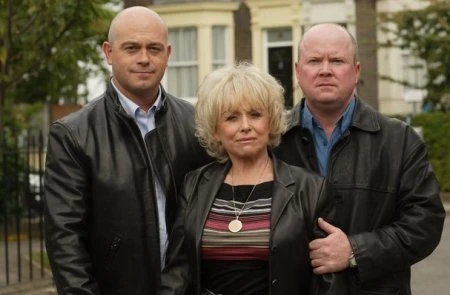
WG: Wasn’t it practically by public mandate that you would play Peggy Mitchell?
BW: Chris Evans, a very popular chat show host over here, turned to the camera one day and said: “EastEnders really has lost it. I wonder what can be done about it. I know! Babs behind the bar! I want you to fax or phone the show and let them know that you want to see Babs behind the bar!” And they did. Little did Chris and the viewers know that I was already in negotiations with the show. Spooky coincidence, eh? June Deitch, the EastEnders casting director, had been to see me in a London show to prove that I was not the bubblehead from the Carry Ons. She apparently saw me in a new light. We met backstage after the show, and I casually mentioned that I’d like to play my own age for a change. I suppose that fixed something in her mind. At the time, the show was thinking about bringing back Peggy. I was thrilled. I could rest my tired bones working on a marvellous television show that I deeply respected. I was very excited about the possibility of playing this feisty lady who would come in and shake up her two boys’ lives.
WG: Did you know any of the cast members already?
BW: I had already met Ross Kemp (Grant) at a charity function and he was lovely to me. He was crazy about the Carry On films. I had also met Steve McFadden (Phil) at the odd function, and we got on well.
WG: What was it like to join the cast?
BW: The first weeks on the show were very odd in so many ways. I’d really thought I’d known the score about television, but for God’s sake, 27 million people watched that first episode I appeared in! I’m essentially a theatre lady and I couldn’t think of an audience in terms of millions at a go. I was thrilled to be on the show, but I’d be lying if I didn’t admit that a few things weren’t quite right about Peggy at the beginning. On a purely superficial level, the wig didn’t fit right. And the clothes weren’t right either. They appeared too downmarket. I was particularly worried about how the character was viewed by the producer and writers. I saw her as much ballsier than they did. I think they envisioned Peggy as this rather sad, vulnerable lady who spent all her time worrying about her children.
WG: Sounds like they saw her as another Dot Cotton?
BW: Exactly, which I really didn’t want to do. Luckily, Corinne Hollingworth came back to produce the show very soon after I came on and agreed with me that anybody who raised Phil, Grant, and Samantha must be a mad cow! She was great. I remember she capped our first big meeting with “And, by the way, Peggy’s going to run the Queen Vic. She’s not going to be allowed to just sit in some flat polishing her nails.” It was like a dream. She let me go out with the costume designer and choose Peggy’s wardrobe, which needed to be a lot more flash and upmarket. Corinne and I worked on getting Peggy right, and I finally began to believe that this was ready for the West End!
WG: What was it like when you did get behind the bar?
BW: I was very, very nervous. I still get nervous. Even today! I’m about to do my first scene with Ross [Kemp] after our two-week holiday break, and she has a go at him, and I’m all anxious about it. (laughs) I take my work very seriously even though I can have a laugh about things.
WG: Surely Peggy’s more than a mad cow?
BW: Of course she’s more than a mad cow. She’s from the old school, the generation which doesn’t put up with rubbish from anybody. She always loved Eric, her first husband, who fathered the three kids, even though he would occasionally get drunk and row with her. He made a widow out of her, didn’t he? She can get through practically anything because she’s tough, tough, tough.
WG: What can you tell me about your first day on the set?
BW: I was so petrified I was literally ill. I was being driven up by my boyfriend, and we had to stop because I needed some fresh air. We were in a town called Henman, and I was standing in some sort of gutter inhaling the air, and I looked up and the first thing I saw was the flat I shared 20 years ago with my ex-husband Ronnie Knight. That story goes in my book, that’s for certain.
WG: What’s your book called?
BW: The Laughter and Tears of a Cockney Sparrow. Read it and weep! And hopefully laugh a bit.
WG: A friend sent me a tape of the National Television Awards and I watched you accept the award for Best Soap on behalf of the EastEnders cast. You seemed so proud.
BW: I am proud, I really am. I think the show goes from strength to strength. We not only won the National Television Awards last year, but we won the BAFTA [the British Academy Awards]! That was absolutely remarkable because the show never had been nominated before and we won over a brilliant series called This Life. The BAFTA was shocking enough but winning our second National Television Award in a row was a big surprise. I really thought it might be Coronation Street’s turn. We did have a gangbuster year.
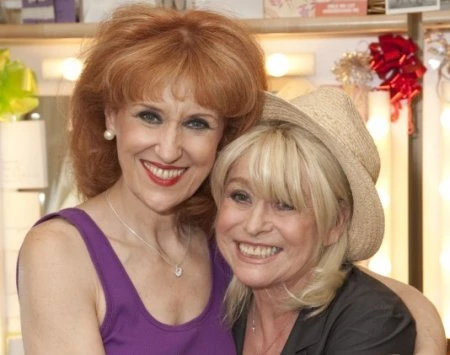
WG: Is there any other character on EastEnders you would have liked to play?
BW: That’s an easy one – Angie. I’m really great friends with Anita Dobson, and once I turned to her and said, “So how ’bout it, ’Nita? Come back to the show even if it’s only for a few weeks?” Her reply was, “I've had my time on the show already, darling . Anyway, they have you now. You’re behind the bar now and you’re great." I thought that was a very kind and generous thing to say. She’s a wonderful, wonderful lady and I adored her as Angie. She went vastly O.T.T. [over the top] but it worked, my God, it worked. She got to do her own make-up and pick her own wardrobe, just as I was allowed to do.
WG: When is Peggy going to sing in the Queen Vic? You’ve got a sensational voice, I gather.
BW: Peggy doesn’t have any talent except for meddling in other people’s lives and running a pub. I did sing at my 60th birthday party last August. I sang “You Made Me Love You” in A flat! I hope to record an album this year in addition to updating my autobiography; when I’ll find the time I do not know.
WG: You must be quite a role model for the younger actors on the show.
BW: It’s lovely that it’s now my turn to lead newcomers of all ages around by the hand and introduce them to the Queen Vic set, which Ross and Steve were so kind to do for me. You might notice that when a new actor does his or her first scene in the Vic that their hands are most likely shaking. I could usually tell this by the way the beer in the glass moved from side to side. They are understandably freaked out, as I was. But I do what I can to help them believe that they’ll be fine. If they show up on time and are fairly serious about their work they’ll have no problems with me!
WG: They’re very lucky to work with you. I certainly feel very lucky to interview you.
BW: Oh darlin’, that’s all right. Now let’s find this bouquet some water. It must be gasping.
Published on September 2nd, 2019. Written by Larry Jaffee for Television Heaven.


